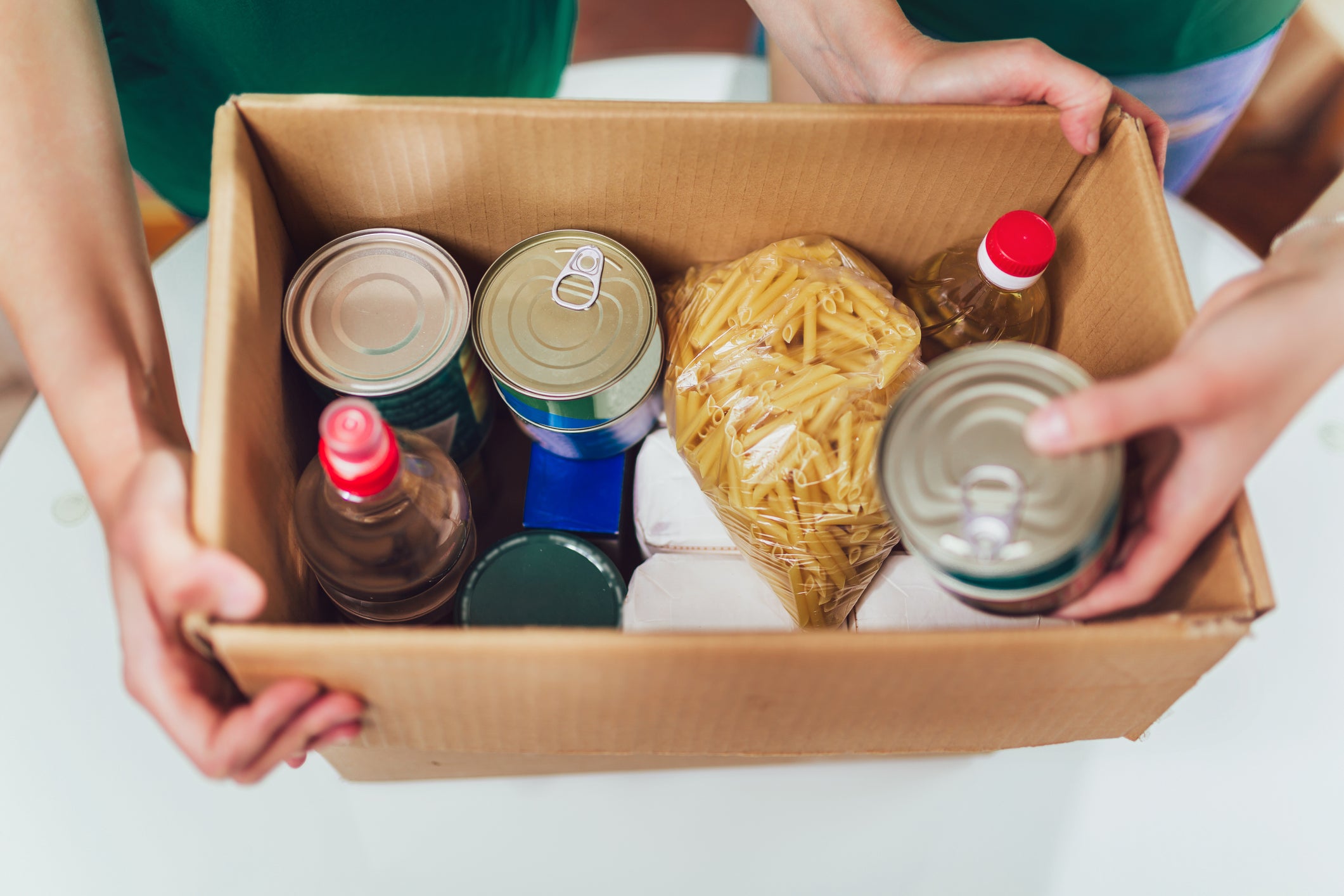Phone calls for the lonely and presents for children: How to help support vulnerable people at Christmas
After a testing year, how can you best support those who need a hand? Jo Whitehead finds out


Your support helps us to tell the story
From reproductive rights to climate change to Big Tech, The Independent is on the ground when the story is developing. Whether it's investigating the financials of Elon Musk's pro-Trump PAC or producing our latest documentary, 'The A Word', which shines a light on the American women fighting for reproductive rights, we know how important it is to parse out the facts from the messaging.
At such a critical moment in US history, we need reporters on the ground. Your donation allows us to keep sending journalists to speak to both sides of the story.
The Independent is trusted by Americans across the entire political spectrum. And unlike many other quality news outlets, we choose not to lock Americans out of our reporting and analysis with paywalls. We believe quality journalism should be available to everyone, paid for by those who can afford it.
Your support makes all the difference.The coronavirus pandemic continues to loom over our lives in 2021, and the emergence of the new omicron variant has thrown plans for Christmas into disarray once again. Covid infections have increased across the UK in the past two weeks, and the government has reintroduced virus measures such as mandatory face masks, vaccine passports and working from home in a bid to slow the spread.
British adults are also being urged to get their Covid booster jabs to increase protection against the virus. As more people continue to get jabbed and undergo restrictions once again, there are fears that many will be left struggling to pay for basic needs, like energy and food this winter as costs rise. As of 24 November, the Trussell Trust said it distributed more than 5,100 food parcels across the UK every day in the past six months.
Although it can be easy to overlook the problems other people are facing when we are struggling with our own challenges, it’s more vital than ever that we don’t. Rising energy prices and inflation, coupled with cuts to the temporary Universal Credit uplift, mean vulnerable people are being impacted more severely than ever before.
And if the pandemic has taught us anything, it’s a sobering reminder of life’s fragility and the importance of working together to defeat a common goal. This Christmas, let’s all try and spread some much needed goodwill to others.
The Independent has rounded up different ways you can reach out to those in need and give them specific assistance over the festive period.
Buy a support parcel for those fleeing domestic abuse
Refuge, the UK charity offering specialist support for those experiencing domestic violence, is selling refuge parcels for women and child escaping domestic abuse. These are comprised of essentials required by those fleeing violence, such as toiletries, nappies, clothes and food.
You can also choose to buy a Christmas parcel, which will provide Christmas dinner for
Buys yours here.
Call an isolated older person

Before the pandemic, older people were already facing a crisis of loneliness. Last year, Age UK reported more than 1.4m chronically lonely older people living in England this summer.
Fear of catching coronavirus, long-term shielding and isolation from other people, and the death of loved ones has all contributed to make a critical situation significantly worse.
However, Age UK, Independent Age, Re-engage and Opening Doors all offer telephone befriending services for older people who may be suffering from loneliness and isolation this Christmas. Contact the organisations directly to see how you can make a big difference to someone’s life this festive season and beyond.
Buy a Christmas present for a child in need
According to the Child Poverty Action Group, there were 4.2 million children living in poverty in the UK in 2018-19; that’s 30 per cent of children. This figure rises to 44 per cent in lone-parent families, and 46 per cent for children from black and minority ethnic groups. For families like these, Christmas can be a stressful time, particularly when so many people have been affected by job loss over the past year.
Fortunately, there are a number of groups organising presents for children around the UK who might not otherwise get one. The Toy Appeal is a registered charity established in 2013 that provides a sack of toys at Christmas for children aged between 0 and 17-years-old who are living in poverty. Social workers, schools, women’s refuges, food banks and drop-in centres can refer a child or family to The Toy Appeal to ensure that they have presents to open on Christmas morning.
Elsewhere, Family Action, a charity offering support to families experiencing poverty and disadvantage, have been organising a toy appeal for vulnerable and low income families since 2009.
You can find out more about this and donate here.
Send a card

If you’re feeling a bit bleak about the state of the world, take some proactive action that can have a big impact on the lives of real people. Amnesty International’s Write for Rights campaign is an annual event that involves sending letters of support to people around the world who have suffered injustice.
As well as sending letters of solidarity, you can write an appeal letter to authorities around the world who can bring justice. If you’d prefer something closer to home, Postcards of Kindness is an initiative that asks people to write and send cards to residents of care homes. According to Age UK, these small gestures “bring a great deal of joy and spark lively conversations among the older people who receive them."
You can find out more about Writes for Rights here.
Gift a young person a Christmas dinner
Violence, abuse, family breakdown and coming out as LGBT+ are just a handful of the reasons why young people become homeless, meaning it can often be safer to leave home than stay.
Established in 1969, Centrepoint has been helping young people aged between 16-25 who are homeless or at risk of homelessness for over 20 years. This year, you can buy a Christmas dinner for a young person who may be unable to be with friends or family for just £10.
You can find out more here.
Share mental health support resources
Despite romantic images of harmonious family Christmases, this time of year has long been a stressful one for many people. Family conflict, separation from or the loss of loved ones, and the additional pressures of the pandemic have all combined to create a perfect storm of stress and anxiety for many people this year.
While it’s important that we do our best to make time for friends and family and listen without judgement, sometimes professional support is the most appropriate.
Mental health charity Mind offers helplines, face-to-face services and online forums when things feel too much, while CALM (Campaign for Living Miserably) runs a helpline and webchat from 5pm to midnight 365 days a year. The Samaritans also offer a 24/7 helpline, email and letter writing service 365 days a year.
Donate to a food bank

For those who can afford to, setting up a direct debit to your local food bank offers a regular source of funds to these essential services, but even a one-off donation helps. Different banks have different needs, so it’s worth checking your local branch to see if they need specific products.
Find your local branch here.

Join our commenting forum
Join thought-provoking conversations, follow other Independent readers and see their replies
Comments